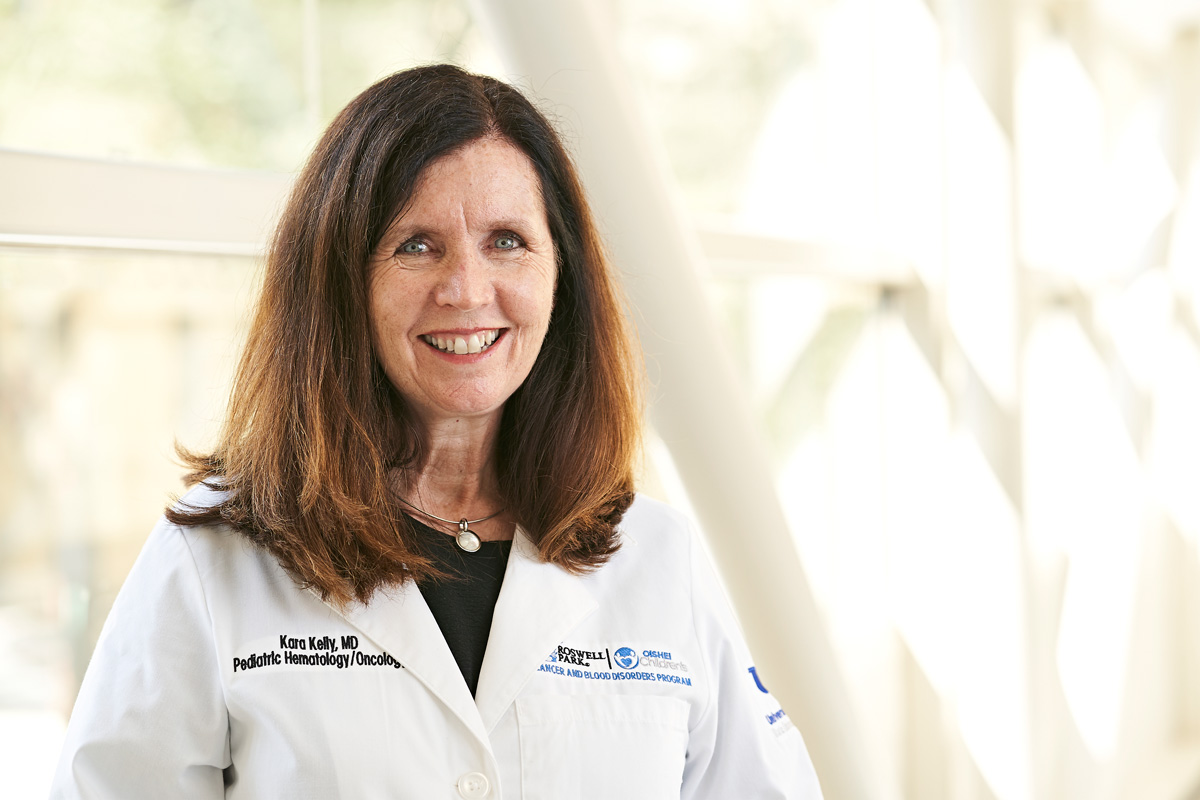- Nivolumab (Opdivo) superior to brentuximab vedotin (Adcetris) in combination
- Clinical trial results expected to change the standard of care
- Study published today in The New England Journal of Medicine
Newswise — BUFFALO, N.Y., and ATLANTA — Updated results from a phase 3 clinical trial are expected to change the way advanced stage classic Hodgkin lymphoma (cHL) is treated in newly diagnosed adolescents and adults. Details appear in a study published today in The New England Journal of Medicine.
Data from the trial show that patients who received nivolumab (brand name Opdivo) experienced fewer side effects and had a 50% lower risk that the disease would progress after treatment, compared with patients who received the standard treatment, brentuximab vedotin (brand name Adcetris). Patients in both groups also received AVD, a chemotherapy “cocktail.”
Nivolumab is a type of immunotherapy called an immune checkpoint inhibitor, which works by releasing the immune system’s “brakes” so it can destroy classic Hodgkin lymphoma cells. Brentuximab vedotin is an antibody drug conjugate, which combines an antibody and a chemotherapy drug that work together to zero in on cancer cells and selectively destroy them.
The largest classic Hodgkin lymphoma clinical trial ever conducted in the National Clinical Trials Network (NCTN), the study enrolled 970 patients — including 237 between ages 12 and 17 — at 736 centers in the U.S. and Canada. Younger patients were able to participate in the clinical trial thanks to the leadership and advocacy of Kara Kelly, MD, the Waldemar J. Kaminski Endowed Chair of Pediatrics at Roswell Park Comprehensive Cancer Center, and Sharon Castellino, MD, MSc, Director of the Leukemia and Lymphoma Program at the Aflac Cancer and Blood Disorders Center of Children’s Healthcare of Atlanta, Professor of Pediatrics at Emory University School of Medicine, and a research member at Winship Cancer Institute of Emory University, the pediatric study chair for the trial.
The clinical trial is especially important because classic Hodgkin lymphoma is one of the most common cancers in people ages 12-39.
“We anticipate that by working with the adult groups in this practice-changing clinical trial, we have paved the way for pediatric patients with advanced stage Hodgkin lymphoma to gain earlier access to checkpoint inhibitors,” says Dr. Kelly. “If we had had to wait to perform a trial for pediatric patients after the adult trial was complete, it could have taken six years or more.” Dr. Kelly is also Chair of the Roswell Park Oishei Children’s Cancer and Blood Disorders Program, Division Chief of Department of Pediatrics for the Jacobs School of Medicine and Biomedical Sciences at the University at Buffalo and Division Chief of Pediatric Hematology/Oncology at UBMD Pediatrics.
“The high rate of progression-free survival with Nivolumab – AVD represents another paradigm shift incorporating immunotherapy into the frontline treatment of advanced stage classic Hodgkin Lymphoma for adolescents 12 and older with a dramatic reduction and near elimination of the need for radiation therapy,” says Dr. Castellino. “This has significant implications toward reducing the risk of radiation associated late effects in the growing child and adolescent.”
The study launched in 2019, and Dr. Kelly presented positive preliminary results last year at the annual meeting of the American Society of Hematology. Investigators have continued to track the progress of the participants since then, with most of the recent follow-ups occurring at 2.1 years.
Jonathan W. Friedberg, MD, MMSc, of Wilmot Cancer Institute and the University of Rochester, is corresponding author on the new publication and Alex F. Herrera, MD, of City of Hope Comprehensive Cancer Center is first author.
Sponsored by the SWOG Cancer Research Network, the study was funded by the National Cancer Institute, National Institutes of Health, through grants U10CA180888, U10CA180819, U10CA180821, U10CA180820, U10CA180863 and UG1CA189955, with additional support from Bristol-Myers Squibb (BMS) and Seagen.
###
About Roswell Park Comprehensive Cancer Center From the world’s first chemotherapy research to the PSA prostate cancer biomarker, Roswell Park Comprehensive Cancer Center generates innovations that shape how cancer is detected, treated and prevented worldwide. Driven to eliminate cancer’s grip on humanity, the Roswell Park team of 4,000 makes compassionate, patient-centered cancer care and services accessible across New York State and beyond. Founded in 1898, Roswell Park was among the first three cancer centers nationwide to become a National Cancer Institute-designated comprehensive cancer center and is the only one to hold this designation in Upstate New York. To learn more about Roswell Park Comprehensive Cancer Center and the Roswell Park Care Network, visit www.roswellpark.org, call 1-800-ROSWELL (1-800-767-9355) or email [email protected].
About Children’s Healthcare of Atlanta As the only freestanding pediatric healthcare system in Georgia, Children’s Healthcare of Atlanta is the trusted leader in caring for kids. The not-for-profit organization’s mission is to make kids better today and healthier tomorrow through more than 60 pediatric specialties and programs, top healthcare professionals, and leading research and technology. Children’s is one of the largest pediatric clinical care providers in the country, managing more than one million patient visits annually at three hospitals, Marcus Autism Center, the Center for Advanced Pediatrics, urgent care centers and neighborhood locations. Consistently ranked among the top children’s hospitals by U.S. News & World Report, Children’s Healthcare of Atlanta has impacted the lives of kids in Georgia, across the United States and around the world for more than 100 years thanks to generous support from the community.
About Winship Cancer Institute of Emory University About Winship Cancer Institute of Emory University As the only National Cancer Institute-designated Comprehensive Cancer Center for the state of Georgia, Winship Cancer Institute of Emory University discovers, develops, delivers and teaches some of the world’s most effective ways to prevent, detect, diagnose and treat each patient’s unique cancer. For more information, visit winshipcancer.emory.edu.

